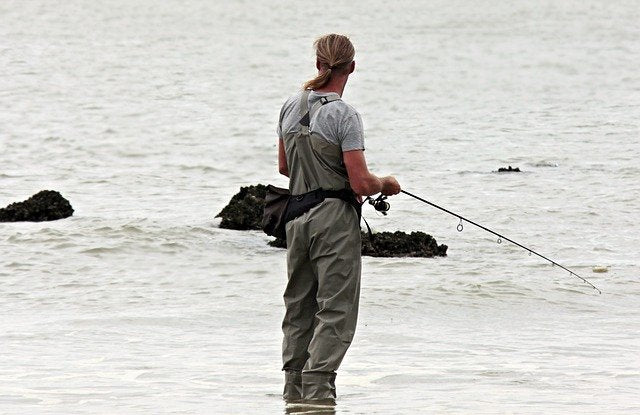Fishing as a hobby is calming and peaceful. You not only get to take home some fish, but you also get to experience being close to nature. People of any age can find fishing fun no matter where they do it. However, it will require a lot of patience because you will spend more time sitting and waiting than catching.
Fishing was initially a way to find something to eat. As the world evolved, it also became a stress reliever for many hobbyists. Being good at this hobby does not mainly depend on your ability to catch or your fishing accessories. It can also depend on several factors.
Sticking to the same location
If you have not caught any fish in a specific location after a long while, you should transfer to another area. Covering a larger area can increase your chances of a catch and give you the opportunity to take home different species of fish.
Every lake or pond is limited. While fishing is fun, it can be frustrating if you do not catch anything. Now is the time to swim out of your comfort zone and start fishing in a new location. However, do not be impatient. There’s a difference between moving too quickly and being strategic. Patience should be present in fishing, so wait for a little longer before moving to a different location. Also, try to identify the native habitats of local species to increase your chances.
Trying out new techniques at the wrong time
Fishing can be categorised into two forms: leisure fishing and competitive fishing. Fishing is also considered a sport nowadays, so if you join a competition, you should develop the necessary techniques beforehand.
However, if you are just fishing to put food on your table, you can practice new techniques before dipping your bait. Moving your fishing rod from time to time can scare the fish away and leave you alone above fishless water. You can train your fishing skills in other bodies of water like a pond near you.
The key to fishing is confidence, and to be confident, you must train, whether it is for leisure or for a tournament. These techniques also depend on the fish you are trying to catch and your location.
Fishing without a plan
Setting a plan is always helpful, especially when fishing. You should select a location where you will fish, the weather, the tools, and the fish you want to target for the day. Just going straight to bodies of water without a plan is an excellent way to go home without fish in your basket.
Inappropriate fishing line and knot
Using inappropriate fishing lines and knots can affect the way you catch fish. This can vary depending on the types of fish that you are trying to catch. Unfortunately, many anglers do not take the time to learn the basics. Knowing the basics can save you from the error of breaking your knots or stretching your line too much. Additionally, a fishing knot tool may also come in handy.
Not practising enough
Practice is the secret to improvement. If you want to get into fishing but do not improve your skills, you will keep catching nothing, even if you go on fishing trips regularly. Learn the basics of fishing and start from there. Be consistent and upgrade your goals every time.
Not Rigging Up Properly
Fish differ in size and behaviour. Their habitat may also affect the way they behave. Therefore, you have to anticipate your fishing technique and rig in particular scenarios. Part of improving your skills is doing your research. Search for different fish behaviours and environments so you’ll know how to strategise.
Conclusion
Fishing for leisure or competition requires both patience and dedication. Whatever your purpose is for this activity, having enough knowledge will always be helpful. It also does not hurt to have all the right tools.
Whether you are a beginner, a pro, or someone with a health condition, make your fishing experience even more effortless with Hook-Eze’s hook tying tool! Hook-Eze is a device that helps fishermen tie their tackle easily and without risking injury. It's especially great for new anglers and those with arthritis or other difficulties with finger dexterity.
